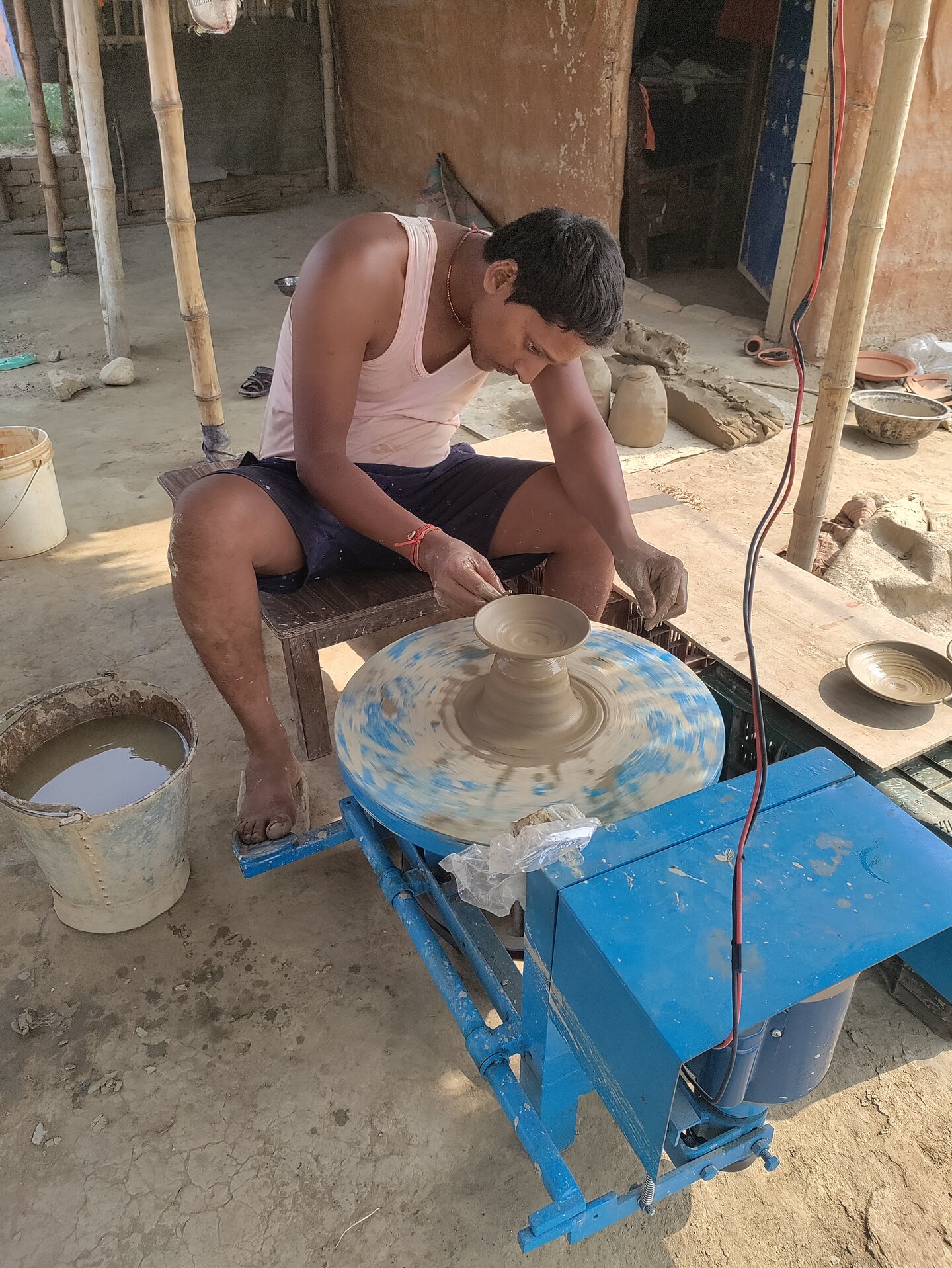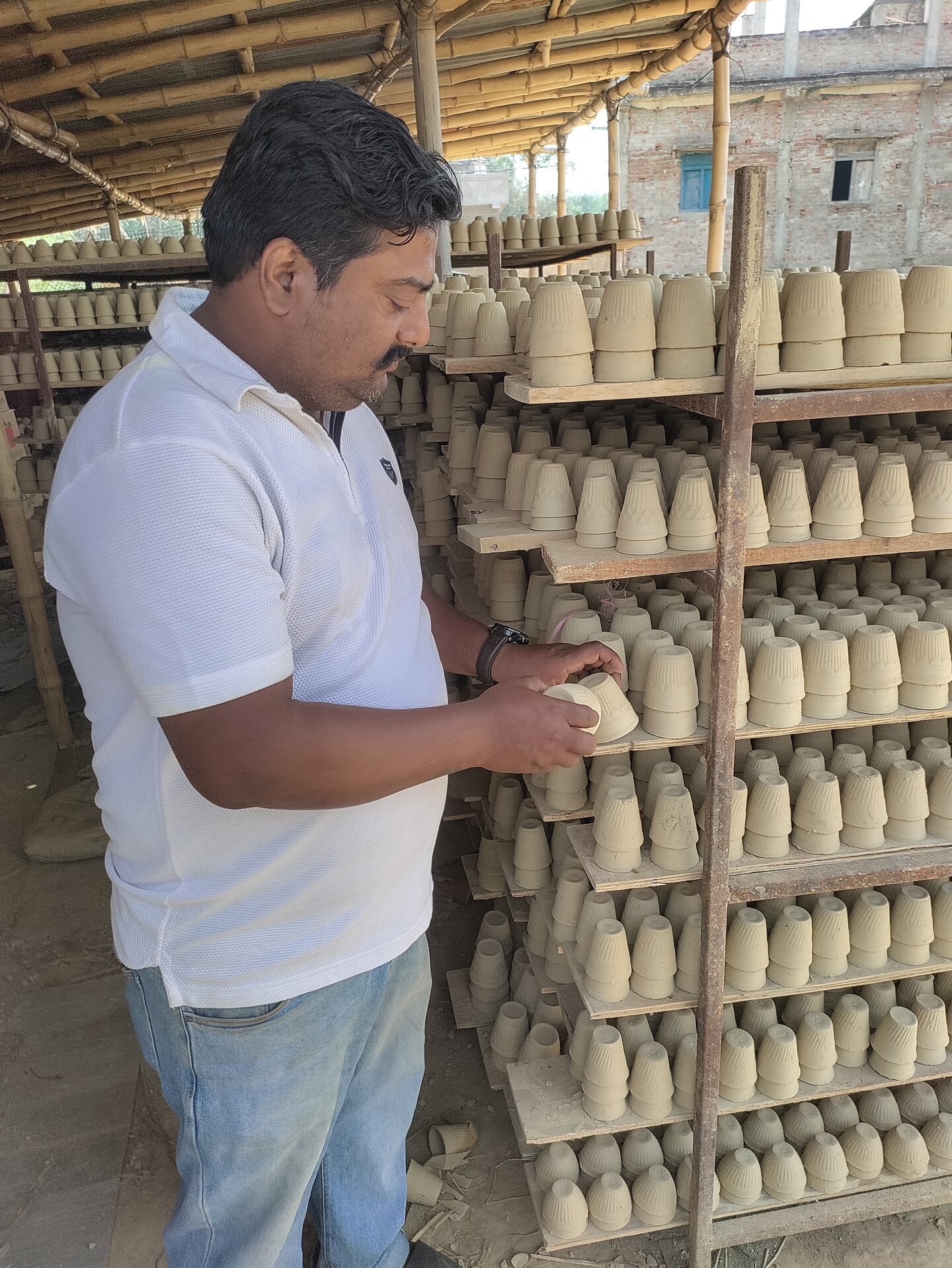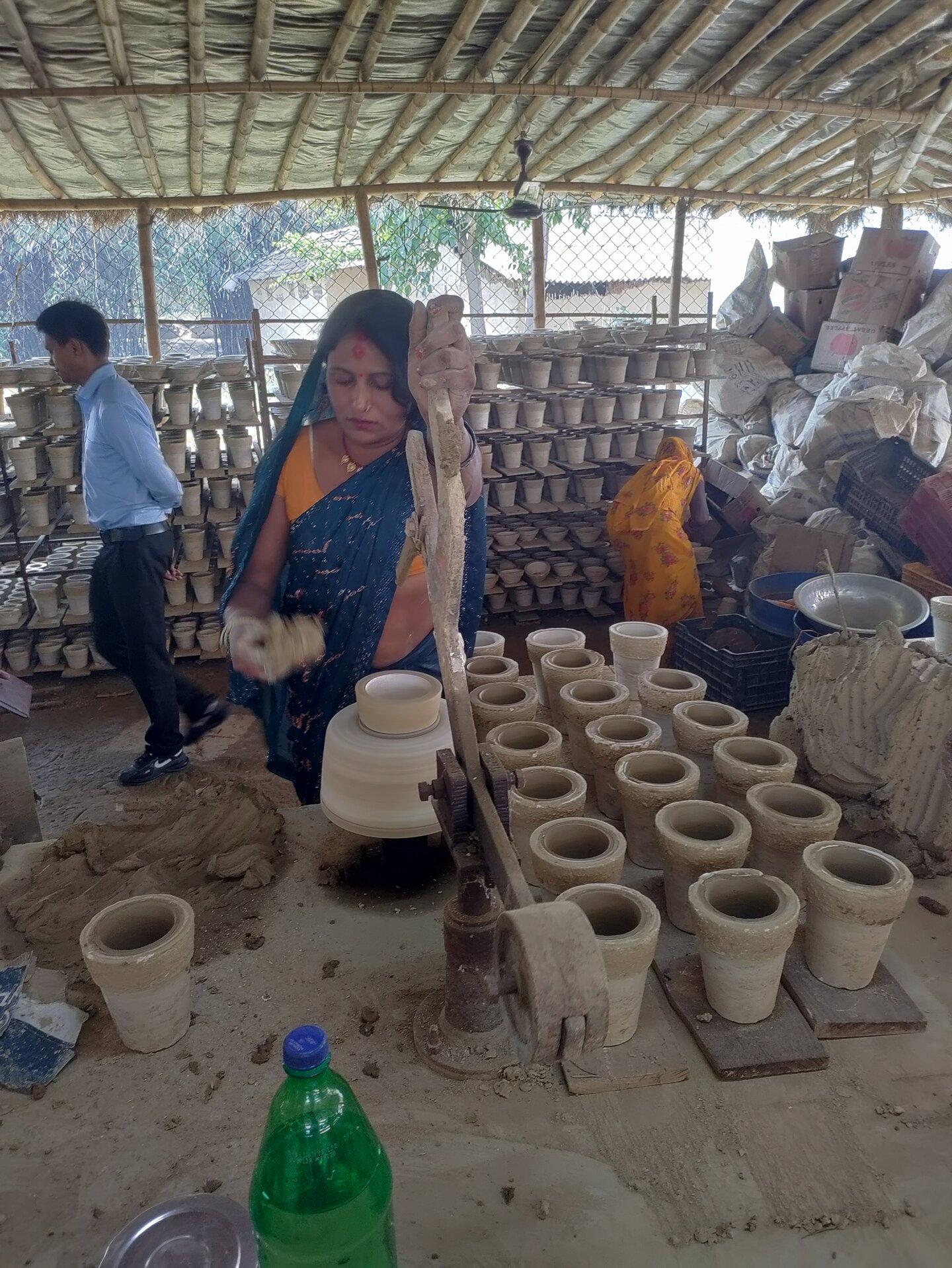In Nepal’s Madhesh Province, the InElam project of Helvetas Nepal is bringing new life to the fading pottery tradition of the Kumhal community. By introducing electric pottery wheels and business support, the project is encouraging youth and women to rejoin the trade—preserving heritage, creating jobs, and building a more sustainable future.
Technology Brings Youth and Women Back to Business
In Nepal’s Madhesh Province, the Kumhal community has been crafting clay pots for generations. Pottery is not just a skill—it’s their heritage and primary source of income. But today, this age-old craft is slowly declining away. Young people and women are turning away from pottery, calling it physically demanding, outdated, and poorly paying. Many leave their villages to search for better opportunities, and unemployment is rising. This shift puts the future of pottery in the Kumhal community at serious risk.
Shrikrishna Pandit Kumahal, a 56-year-old potter from Pokhariya Municipality-9, still makes clay pots every day. It’s tough work, but it helps feed his family and support his son’s education. He hopes his children will carry on with the tradition—but they aren’t interested. “The work is too hard,” he says. “Cheap pots from India and China are everywhere. How can we compete?” He believes that better tools and small machines could make the work easier and more appealing to the younger generation. “If we get support to improve our work,” he adds, “I’m sure our children will be interested again.”

A New Generation Joins In
Recognizing these challenges, InElam project of Helvetas Nepal partnered with the National Innovation Center in Kathmandu to introduce electric-powered pottery wheels. These machines are replacing the old, labor-intensive manual wheels and bringing hope to struggling potters.
One of the early adopters is 28-year-old Sandip Pandit Kumahal, Shrikrishna’s son. A management graduate, Sandip had planned to go abroad for work—but the new technology inspired him to stay and join the family business.” These machine-made things easier and more efficient. It motivated me to work alongside my father,” Sandip shared. “I’m now exploring other technologies, like energy-efficient ovens, to replace traditional clay ovens.” The current ovens cause around 25% product damage and depend on firewood, which is costly and inconsistent, affecting the quality of the products.
Bidhya Devi Pandit Kumahal, 38-year-old wife of Shrikrishna Pandit Kumahal, has also adopted the change. “The manual wheel was too heavy for me. But this electric wheel is foot-controlled and easy to use,” she said. “Now we can make a variety of products based on market demand.” Their next goal is to replace the traditional oven with a modern, energy-efficient version—to improve quality, reduce costs, and expand their business sustainably.

A Pottery Entrepreneur from Jhauwguthi
Another inspiring story comes from Kaushal Kishor Saraf, 27 years a young from Binda Bashini Rural Municipality, Jhauwguthi. Once unemployed and planning to migrate abroad, his life took a new turn after meeting Enterprise Service Provider Sunil Saha. With guidance from the InElam Project, including exposure visits, technical training, and business planning, Kaushal decided to stay and start his own pottery business. With an initial investment of USD 2,500—borrowed from family and friends, he purchased machines and launched his startup a year ago. Today, Kaushal produces around 15,000 pottery items like teacups and pots, selling them across Nepal under the brand name Mataka Tea. His eco-friendly cups are slowly replacing plastic alternatives in urban areas—a sign of growing demand for sustainable products. His business has also created jobs for 17 women in his village, each earning between USD 170 and USD 180 per month.

Empowering Change Through Innovation
These stories show how access to the right technologies and business services can empower young people and women to build sustainable, innovative enterprises—while preserving cultural traditions. InElam project of Helvetas Nepal continues to work closely with private sector actors, innovators, financial institutions, research organizations, and the National Innovation Center. Together, they are promoting technology-driven solutions that help local businesses succeed. Many families in the Kumhal community face similar challenges. But with small investments in tools, training, and business support can help them preserve their heritage, increase their income, and create local jobs.
Now, the InElam Project is preparing to enroll 20 youths and women in a business and technology through incubation aimed at reviving the traditional pottery industry. This initiative will be carried out in partnership with local and provincial governments, financial institutions, and youth groups.
Our aim is not just to create economic opportunities—but to generate social and environmental values as well. By blending traditional skills with modern tools and entrepreneurship, the program promotes sustainable business practices that protect cultural heritage, reduce plastic use, and create dignified local employment.




